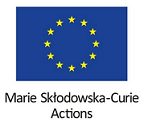NATURE: Innovative designs to enable plastic packaging circular economy

Specific programme: Marie Skłodowska-Curie Innovative Training Networks (ITN) – European Training Network
UPV/EHU Partner Status: Beneficiary
UPV/EHU PI: Haritz Sardon
Project start: 01/01/2021
Project end: 31/12/2024
Brief description: Plastics are the material of choice in packaging applications because of their low cost, high performance and ready processability. Such is their success that it is expected that by 2050 the production of plastic packaging will exceed 250 million metric tons. Considering most plastics that are employed in the packaging industry are used for less than a week, the lack of environmental degradability has led to a tremendous growth of disposed plastics. This growth, together with the fact that the vast majority of synthetic plastics are designed for performance and durability and not for degradability and recyclability, has brought tons of plastic accumulation in the oceans and landfills – approximately 56 million tons per year.
The problem has been highlighted by the acclaimed prediction that by 2050, the ocean is expected to contain more plastics than fish (by weight). Although it was envisioned that biodegradable polymers based on ester linkages such as poly(lactide) (PLA) or poly(3-hydroxybutyrate) could be part of the solution because they are mainly derived from bio-renewable sources (e.g. starch and cellulose) and can be enzymatically or hydrolytically degraded leading to an environmentally closed circular ecosystem, low permeability in the case of PLLA and poor mechanical properties in the case of PHB has limited their potential.
NATURE-EID proposes an innovative research training program at the forefront of circular economy of biobased polyesters. In particular, the project will develop fundamental knowledge in the synthesis of new biobased polymeric materials where the polymers are not only design based on their performance but also on their recyclability.
